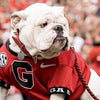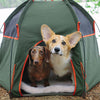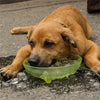Can Dogs Get Coronavirus?
Posted by Michael Shine
What you need to know
We do not know the exact source of the current outbreak of coronavirus disease 2019 (COVID-19), but we know that it originally came from an animal, likely a bat.
At this time, there is no evidence that animals play a significant role in spreading the virus that causes COVID-19.
Based on the limited information available to date, the risk of animals spreading COVID-19 to people is considered to be low.
More studies are needed to understand if and how different animals could be affected by COVID-19.
We are still learning about this virus, but it appears that it can spread from people to animals in some situations.
Coronaviruses are a large family of viruses. Some coronaviruses cause cold-like illnesses in people, while others cause illness in certain types of animals, such as cattle, camels, and bats. Some coronaviruses, such as canine and feline coronaviruses, infect only animals and do not infect humans.
Risk of animals spreading the virus that causes COVID-19 to people
Some coronaviruses that infect animals can be spread to humans and then spread between people, but this is rare. This is what happened with the virus that caused the current outbreak of COVID-19, with the virus likely originating in bats. The first reported infections were linked to a live animal market, but the virus is now spreading from person to person.
The virus that causes COVID-19 spreads mainly from person to person through respiratory droplets from coughing, sneezing, and talking. Recent studies show that people who are infected but do not have symptoms likely also play a role in the spread of COVID-19. At this time, there is no evidence that animals play a significant role in spreading the virus that causes COVID-19. Based on the limited information available to date, the risk of animals spreading COVID-19 to people is considered to be low. More studies are needed to understand if and how different animals could be affected by COVID-19.
The World Health Organization declared that the COVID-19 novel coronavirus is a global pandemic. In the panic over the spread of the virus, people are worried not only about their health but the health of their dogs, cats, and other pets.
Dogs wearing face masks have popped up in photos across social media, causing pet owners everywhere to ask: can dogs get coronavirus.
Can dogs contract COVID-19?
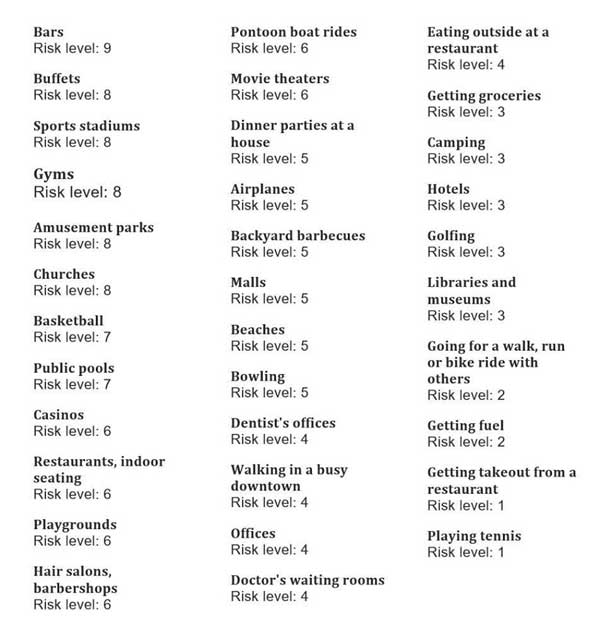
Hong Kong health officials have continued to test dogs and cats owned by people infected with the coronavirus. Officials there have stated that cases of infection in dogs appear to be infrequent. As of March 25, Hong Kong’s Agriculture, Fisheries, and Conservation Department “has conducted tests on 17 dogs and eight cats from households with confirmed COVID-19 cases or persons in close contact with confirmed patients, and only two dogs had tested positive for the COVID-19 virus.”
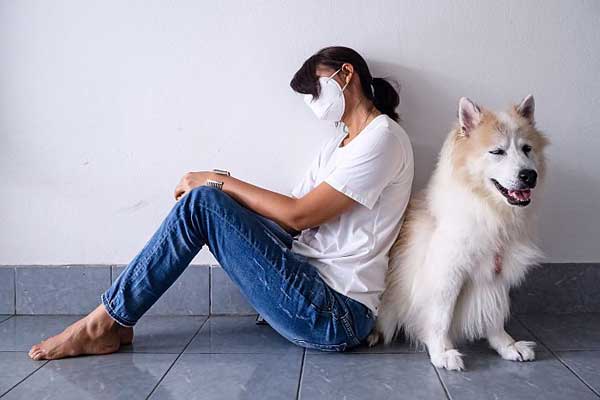
Hong Kong officials stress that “these findings indicate that dogs and cats are not infected easily with this virus, and there is no evidence that they play a role in the spread of the virus.”
Can other animals contract COVID-19?
A tiger at New York’s Bronx Zoo is the first known case of COVID-19 in an animal in the United States. Several tigers and lions at the zoo showed symptoms including a dry cough, wheezing, and lack of appetite. All of the animals at the zoo are believed to have been infected by a zoo employee who showed signs of COVID-19. These zoo animals are expected to recover. Dr. Jane Rooney, a veterinarian and USDA official, tells the Associated Press, “There doesn’t appear to be, at this time, any evidence that suggests that the animals can spread the virus to people or that they can be a source of infection in the United States.”
The American Veterinary Medical Association also reports on preliminary results of “experimental infection” of domestic cats, ferrets, and dogs in China, but cautions that these results don’t represent real-world circumstances and should not be overly interpreted.
Can dogs spread COVID-19?
The CDC says that “while this virus seems to have emerged from an animal source, it is now spreading from person-to-person.” The CDC recommends that people traveling to China avoid animals both alive and dead, “but there is no reason to think that any animals or pets in the United States might be a source of infection with this novel coronavirus.”
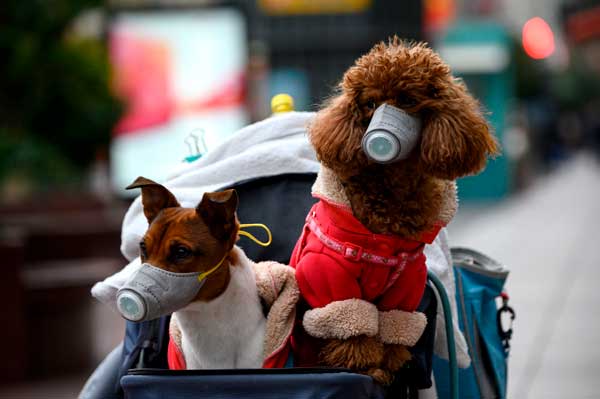
In households where a person has tested positive for the virus, the CDC recommends having another person in the household handle the daily care of the pet if possible.
Is it safe to pet my dog?
Dr. Jerry Klein, Chief Veterinary Officer for the AKC, says, “The CDC has not reported any cases of pets becoming infected with COVID-19 in the United States.” Dr. Klein urges common-sense best practices when it comes to our pets: “If you have children, you wouldn’t have them touch a puppy and put their fingers in their mouth because they can have fecal contamination,” he says. “The general practice of washing our hands after touching a puppy or a dog—that’s normal hygiene.”
Can I walk my dog?
Owners should wash their hands thoroughly for at least 20 seconds before and after each walk. Consider carrying around a pocket-sized bottle of hand sanitizer during your walks. Practice social distancing measures by walking your dog in uncrowded areas when possible. If you live in a big city, make efforts to take your dog down less-heavily-trafficked blocks, or try adjusting walks to less busy times of day and night. Prevent your dog from associating with other people out of an abundance of caution.
How can dog owners protect dogs from coronavirus?
Wearing a mask while interacting with your dog or other pets can reduce the possibility of spreading the virus through droplets. To reduce the spread of all germs, you may also consider wiping your pet’s paws when they come in and out of the house with a paw cleaner and paw wipes.
Dogs do not need a face mask to protect themselves against the novel coronavirus COVID-19. If you are still concerned or notice a change in your dog’s health, speak to a veterinarian. And the most important protection of all: Under no circumstances should owners abandon their dogs, cats, or other pets because of COVID-19 fears.
The AKC is here to help dog owners adapt to the ongoing COVID-19 pandemic.
Can dogs get the new coronavirus (COVID-19)?
If experts believe it is unlikely for a dog to get COVID-19, how did a dog test "positive" in Hong Kong?
Although pets cannot become sick from COVID-19, could they serve as a conduit of infection between people?
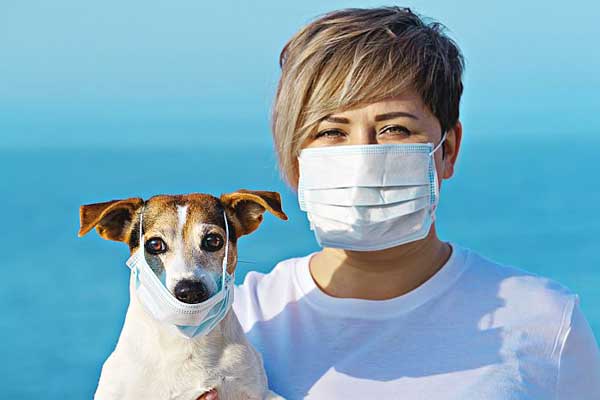
Just as people who live with sick individuals must avoid contact with others, do the same with your pets.
Is there a COVID-19 vaccine for dogs and cats?
Veterinarians are familiar with other coronaviruses. Similar but different coronavirus species cause several common diseases in domestic animals. Many dogs, for example, are vaccinated for another species of coronavirus (Canine Coronavirus) as puppies. However, this vaccine does not protect dogs from COVID-19.
Can veterinarians test for COVID-19 in pets?
Why is the college offering a COVID-19 test for pets if they cannot get it?
What animal did COVID-19 originate?
If diagnosed with Covid-19, how do I protect my pet?
Therefore, to protect other people and yourself, the CDC recommends that you limit contact with pets if you are sick with COVID-19. Avoid snuggling, being kissed or licked, and sharing food. If you must interact with your pet, wash your hands before and after, and wear a face mask.
Should my pet wear a face mask in public?
Should I wear a face mask?
Wearing a surgical mask won't prevent anyone (human or animal) from being exposed to the virus. A cover should prevent someone that is potentially infectious from spreading the virus to others via droplets through coughing, sneezing, or talking.
How do I protect my pet and myself from COVID-19?
To protect yourself, the CDC recommends the following steps:
- Wash your hands often with soap and water for at least 20 seconds!
- Avoid touching your eyes, nose, and mouth.
- Avoid close contact with sick people.
- Stay home when you are sick.
- Cover your cough or sneeze with a tissue, and then throw it away.
- Clean and disinfect frequently touched objects and surfaces.
Should I Have Voluntary Home Isolation?
The CDC recommends quarantine until at least 24 hours after you are free of fever (100 degrees F) or signs of illness without the use of fever-reducing medications.
Veterinary practices should designate their clinic as a temporary NO HANDSHAKE ZONE. Ask colleagues and clients to refrain from shaking hands.
 5 Star Customer Reviews
5 Star Customer Reviews FREE Shipping Over $39
FREE Shipping Over $39
 Exceptional Customer Care
Exceptional Customer Care
